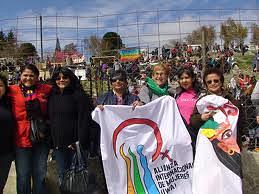CIDA's fate becomes planned and predictable
The 1950s was a time of momentous change in the world. Europe was rebuilding after having barely escaped the horrors of fascism. Africa and Asia were throwing off the yoke of colonialism. In the Americas, movements for social justice and democracy were springing up. The United Nations, once a dream, became a reality. Within this tumult and thirst for change, the idea of international development and co-operation emerged while the U.S. and the USSR realized that peace could not be assured through old colonial practices. Many countries, not yet known as the Third World, demanded the end of the pillage of their natural resources. Finally, in the 1960s, Canada decided to get on board. Public opinion was clear — the devastating poverty affecting three-quarters of the world’s population was morally and political untenable. A man of vision, Pierre Gérin-Lajoie, was named to head the Canadian International Development Agency (CIDA) and he arrives on the scene ready to give new impetus to the nascent movement. A former Minister of Education during Quebec’s Quiet Revolution, he believed that international development was everyone’s business and gave CIDA a clear mission — to participate in the development of impoverished countries. Throughout those years of exciting change, CIDA and a wide group of non-governmental organizations (NGOs), brimming with energies and ideas, became well-respected partners throughout the Third World. At the UN, Canada plays a leading role as the champion of development, arguing that rich countries should devote 0.7% of their GNP to the world–wide fight against poverty. But the Cold War between superpowers heated up a few decades later. In the early 1980s President Reagan began a program of re-militarization of the United States. In Canada a conservative tide brings government policy “back into line.” And then CIDA aligned itself with the World Bank who wanted to “tame” those Third World countries that were viewed as recalcitrant and difficult. Serious conflicts erupted with those NGOs that wanted to take seriously the necessity to struggle against poverty, a position that was incompatible with the neoliberal “recipes” imposed upon poor countries. In the 1990s, and in line with this austerity push, the Liberal government slashes the CIDA budget by 30 % in the name of deficit reduction. Popular organizations and NGOs vigorously protested. The NGOs took the position that you’ve got to save the baby (CIDA) but throw out the bathwater. In other words, there had to be a refocusing of energies on the fundamental mission of CIDA, the struggle against poverty. NGOs and other partners organize a world-wide campaign which meets with some success. In 2000, the UN General Assembly, adopts the Millennium Development Goals program, re-launching a modest but important program to address some of the most dramatic problems such as extreme poverty, lack of access to education and healthcare and women’s rights. Read more..
Comments
There are 0 comments on this post













